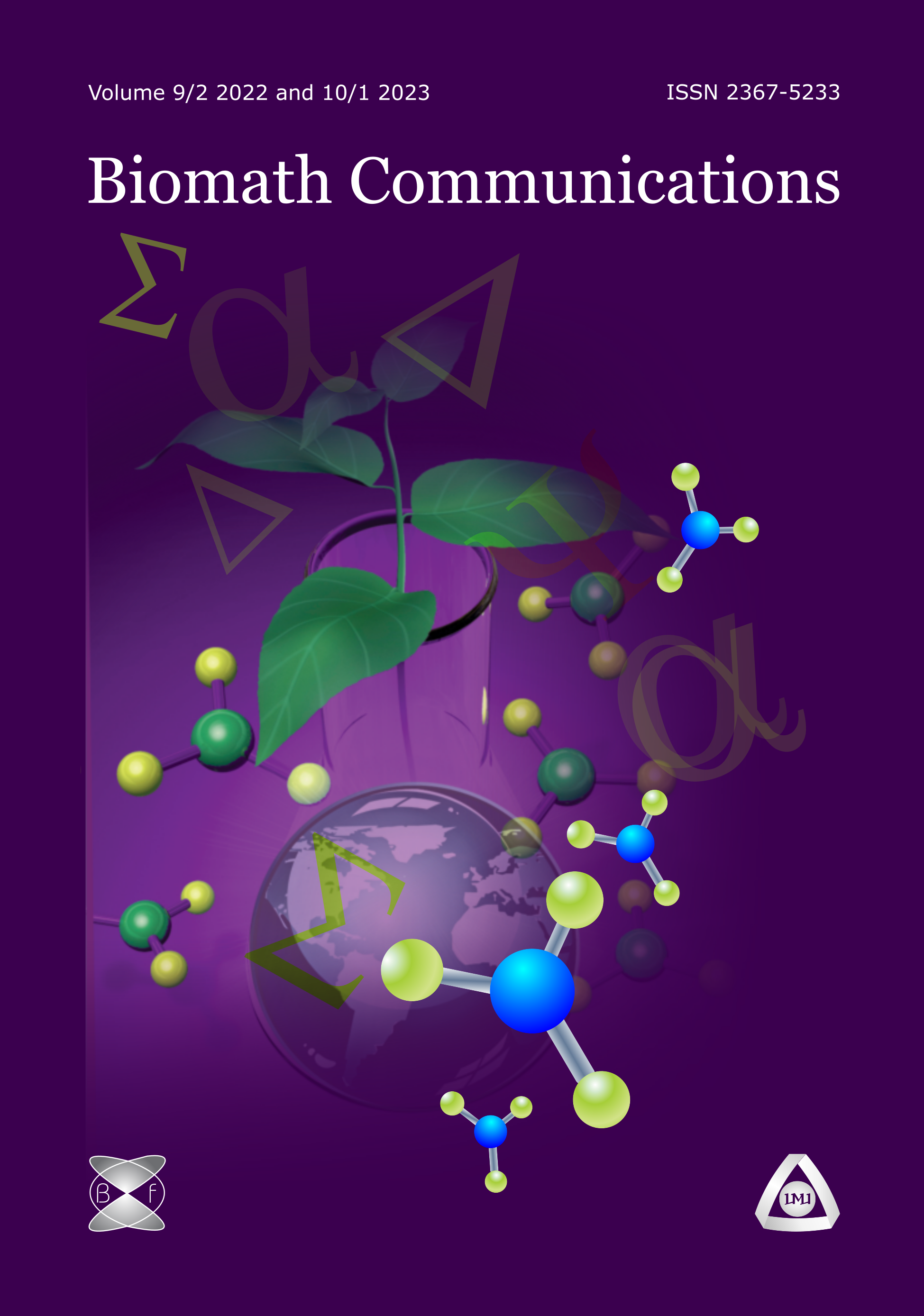Mathematical modeling of bioprocesses with the use of fractional order derivatives
DOI:
https://doi.org/10.11145/bmc.2021.04.017Abstract
This work brings together two recently discussed topics: mathematical modeling of a bioreactor and working with derivatives of non-integer order. Generally, it turns out that it is reasonable to replace the integer order derivatives in some of the already well known mathematical models describing bioprocesses with fractional order ones. However, the specific structure of such type of derivatives makes the study of the properties of the models a real challenge. This work contains primary results for modeling of a bioreactor with appropriately selected numerical approximations. Different scenarios are taken into consideration: starting from the simplest one - without mortality and then complicating by adding nonzero mortality term. In the classical case the solution of the system of differential equations describing the process has a specific behaviour in terms of monotonicity. Therefore, the focus of the further examinations is to find out whether it is possible to generalize the model into a fractional order one such that the key properties considering monotonicity still hold. The results show that the latter requires certain dependencies between the orders of the derivatives in the mathematical model. The hypothesis is based on two types of experiments which are described in detail. Lotka-Volterra and Monod specific growth rate are used in the mathematical model. The paper contains figures which illustrate the results from different numerical computations performed via Wolfram Mathematica software.Downloads
Published
Issue
Section
License
The journal Biomath Communications is an open access journal. All published articles are immeditely available online and the respective DOI link activated. All articles can be access for free and no reader registration of any sort is required. No fees are charged to authors for article submission or processing. Online publications are funded through volunteer work, donations and grants.
Authors who publish with this journal agree to the following terms:
- Authors retain copyright and grant the journal right of first publication with the work simultaneously licensed under a Creative Commons Attribution License 4.0 that allows others to share the work with an acknowledgement of the work's authorship and initial publication in this journal.
- Authors are able to enter into separate, additional contractual arrangements for the non-exclusive distribution of the journal's published version of the work (e.g., post it to an institutional repository or publish it in a book), with an acknowledgement of its initial publication in this journal.
- Authors are permitted and encouraged to post their work online (e.g., in institutional repositories or on their website) prior to and during the submission process, as it can lead to productive exchanges, as well as earlier and greater citation of published work (See The Effect of Open Access).

